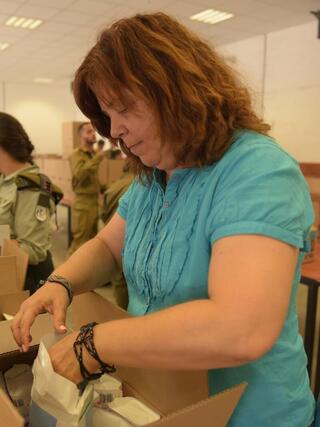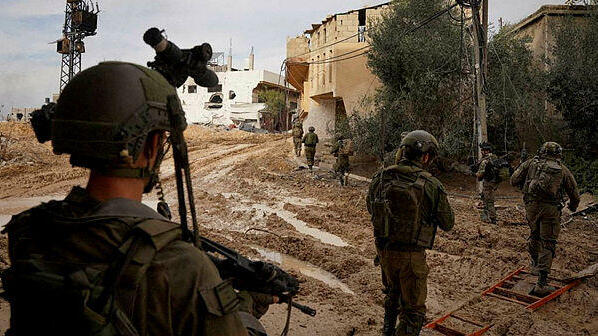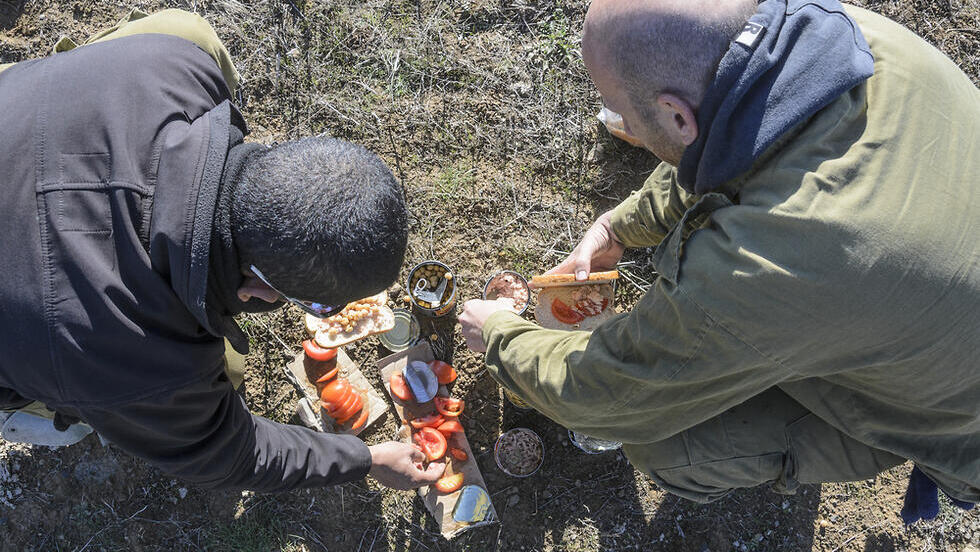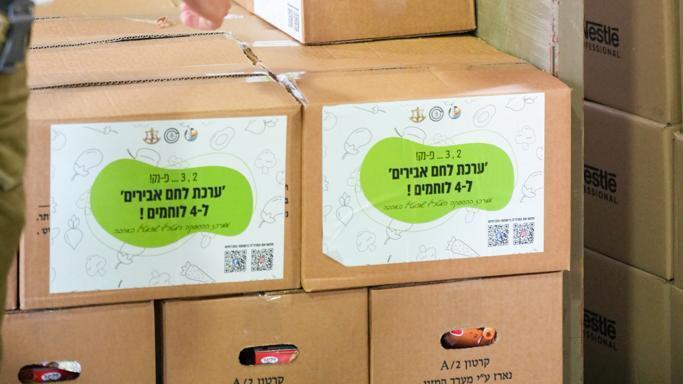Meat wraps, ready-made meals, protein powders, energy gels, hot meals, candies, snacks, personal soups, cookies, breakfast cereals, stews, vacuum-sealed fruits and vegetables and, of course, the renowned battle rations. No, this isn't a food product advertisement, but rather a glimpse into the nutritional menu provided to IDF soldiers on the battlefields of Gaza.
Read more:
Behind the scenes of any major army, a crucial component fuels the physical and mental resilience of its soldiers – nutrition. Among the many challenges faced by the IDF with the outbreak of war was how to feed so many soldiers in combat, far from the large mess halls of bases and outposts. It seems that the IDF was well-prepared for the task.
The global health revolution in recent years, along with the increased awareness of the importance of quality nutrition for both physical and mental well-being, has led to a shift in the approach at the top of the IDF. The military acknowledges that optimal performance on the battlefield is closely tied to the precise nutrition provided to its forces, and it operates accordingly.
In recent years, IDF commanders have made significant efforts to ensure that soldiers receive a nutritionally sound response according to strict standards. One of the key figures responsible for this is Sigal Faran, a nutritionist and head of the institutional nutrition department at the IDF's Logistics Center. Faran holds a crucial role in overseeing the quality of nutrition for all IDF soldiers. Ever wondered if your son or daughter is eating well in the army? She's the one to ask.
"We are dealing with the characterization and development of food and nutrition projects," explains Faran. "In this field there are experts from food engineering and biotechnology, machine engineering, nutritionists in institutional nutrition, and chemical engineering. We develop food, test food and food services, and various means and systems throughout the IDF."
Faran explains that the soldiers' nutrition is divided based on different activity profiles. The entire nutritional program is built on international nutritional recommendations, particularly those of the U.S. military. There are three categories: routine, training and emergency/operational activity – each with its corresponding nutritional solution.
"When we talk about routine, we base it on optimal nutritional status – building and training them. The goal is to construct the soldier in terms of muscles and body mass," says Faran. "In training, we aim for a nutritional response that allows the development of performance capabilities during the activity and also aids recovery afterward. We emphasize effective support in muscle building and recovery. We also make sure to provide midday snacks, especially protein-rich night meals, as muscle building occurs during the night."
The third aspect is, as mentioned, emergency and operational activity. "Here, we create a nutritional response that supports various activity profiles: foot soldiers, troops in armored personnel, and others. Each such response is, of course, based on nutritional values. We strive to vary the response but consistently maintain nutritional status to ensure the soldiers' readiness. The food isn't just meant to be pleasant and indulgent; it needs to help maintain readiness and alertness."
 Sigal FaranPhoto: IDF Spokesperson's Unit
Sigal FaranPhoto: IDF Spokesperson's UnitAccording to Faran, at the core of the soldiers' nutrition base stands the battle ration. "When a soldier is in the heart of Gaza or during an emergency, there are situations where it's not possible to introduce additional items," she explains. "The battle ration is the nutritional anchor. It is provided in pre-packaged form and tailored for four soldiers for 24 hours, including bread, vegetables and a protein portion to maintain the soldiers' nutrition. Of course, there are additional supplements, variations and upgrades."
"For the battle ration, there is no substitute, but various supplements can be added to it," says Lt. Col. Ortal Edri, head of the Food Enhancement Department in the IDF. In her role, Edri is responsible for procuring all food items for the IDF. "All products, both in routine and emergencies, are purchased by us – from fruits and vegetables to meats and poultry, and even dry products, preserves and more."
When they talk about supplements and upgrades, they refer to various packages provided to soldiers for nutritional supplementation to the classic combat ration. Here, there are numerous options tailored to different activities. These supplements are distributed weekly, with a different package each time, ensuring variety throughout the week and reaching the soldiers directly.
"For example, we have a boost package for the soldiers. It's specially designed for combat operatives and is tailored for intense activity - providing enough energy and protein on the go. The package includes dried fruits, candies, energy gels, protein snacks and even savory items like cookies and pretzels," details Faran. Another package is called the 'Knights' Bread.' "It includes appealing items for soldiers, such as tortillas, energy drinks, condiments in squeezable bottles like peanut butter or tahini, sauces that significantly enhance the battle ration, beloved personal spices, a soup in a cup, coffee and tea, soups, and even vacuum-packed corn cobs, which are a big hit. All to diversify and enrich the combat ration," says Faran.
And there's more. "Besides these, we have a basic response in the form of a cold meat wrap - a sandwich with flatbread, filled with shredded meat/chicken breast/shawarma and personal sauces - intended for soldiers on the move, provided with temperature-preserving means for food safety," explains Edri. "We also began to assemble the 'Pot-Bar' kit. In this kit, there are two disposable pots with two ready-to-eat dishes – pasta, two pasta sauces, mineral water and, of course, a homemade cake for a sweet treat afterward. We also have an instructional video explaining how to prepare this dish. Let them feel warm and pleasant during their time in the field, with a touch of the scent of home."
The troops themselves also have a say in the food provided to them in the field. "We know how to adapt ourselves to their requests," says Edri. "Every time the troops go for a break, we contact them and ask what they need, what else we can bring them, and what's missing. There have even been requests for specific types of cookies, and we made sure to accommodate those. It's important to note that we look not only at the nutritional aspect but also at the emotional side. I always say that there's something very emotional, very comforting in food, so every time we meet the combat operatives, we also ask what will give them a different feeling."
Does food affect morale?
"Absolutely," says Edri. "The last time the troops went for a break, they knew who we were and approached us, expressing how they couldn't imagine how much the food response lifted their spirits. What they asked for was really small things: Shabbat kits – wine, two loaves of bread, snacks, and two sweet pastries, and we send that to them as well, boosting morale. In the end, when they manage to create a semblance of a Friday night kiddush within a combat zone, for me there's nothing more moving than that. Despite all the difficulties – and there are challenges in this warfare – being able to provide a bit of comfort and indulgence. I call it pampering them and embracing them. For us, that's the victory. It's truly touching and emotional."





